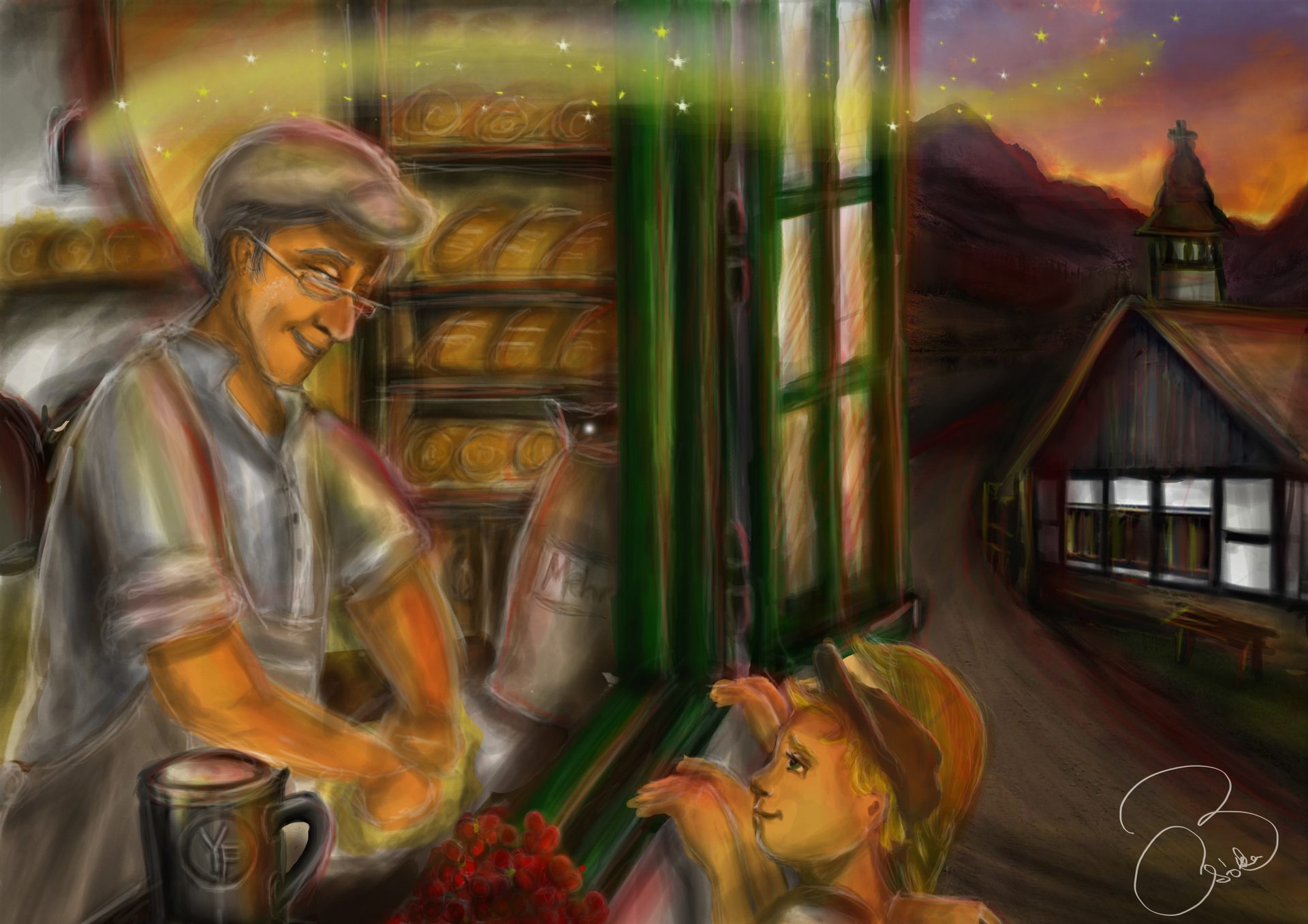YeaStory
Herr Weizen

In all of Oberammergau, Weizen the baker was beloved for his honest work and tireless dedication—but most of all, for his mouthwatering white bread. The townspeople would dunk his crusty loaves with their soft, fluffy centers into sausage fat beside heaps of sauerkraut. Travelers passing through never left without a loaf or two, eager to share the delicious bread with those waiting at home.
Old Weizen lived a respectable life, guided by Protestant temperance even after the death of his wife. Outside of his work, his greatest joy was his grandchildren, who often stopped by his window just to inhale the scent of fresh bread pulled from the oven—and to snatch the ugliest brioche and cinnamon rolls, knowing full well those were always the tastiest.
As the boys, Max and Moritz, grew up, they became less interested in cocoa- and nut-filled pastries. Their attention shifted instead to the curves beneath the dirndls of Unterammergau girls and the superb brew of the local brewmaster.
It was during one visit to an Unterammergau tavern that the boys came up with a prank to play on their grandfather. Upon returning home, Moritz kept Weizen distracted with a tale of his latest romantic conquest—slightly exaggerated, of course—while Max, the elder, slipped sausages into the center of the small loaves rising near the oven.
The old baker, ever the retired church elder, sternly warned his younger grandson to be careful with the girls. Yet deep down, he was proud of the lively young man. Whether it was age or nostalgia for Moritz’s escapades clouding his vision, no one knows, but what’s certain is that he failed to notice Max’s trick and slid the loaves into the oven with a clear conscience.
The next day, however, his peace was shattered when the women of Oberammergau—led by the pastor’s wife—stormed into his shop, shouting indignantly that he had dared to sneak meat into their husbands’ food on a fasting day. The uproar was so great that poor Weizen was chased out of town and had to flee all the way to Unterammergau, where the two scoundrels were charming the brewmaster’s daughters.
He immediately confronted them, and after a few awkward chuckles and a couple mugs of beer, they confessed the prank in detail. Thankfully, as the beer flowed, so did the old baker’s anger ebb. But one still had to make a living—so the three of them put their heads together.
Max and Moritz urged their opa to stay with them. Unterammergau would be a good place for him too. The idea pleased everyone—especially the brewmaster’s daughters. So, Weizen opened a new shop in his old age, and the pride of his selection became the sausage-filled bread that Max dubbed the heißer Hund—the “hot dog.”
As for the story’s aftermath, the outraged Oberammergau housewives attempted to report Weizen to the local authorities, but by the time they returned from trying to lynch him, no usable evidence remained—not even on the pastor’s own table, nor that of the mayor.
In his new hometown, the baker became known simply as Herr W.—a master of his craft, and perhaps even more famously, a true outlaw (albeit not entirely by choice). He spent his final years in peace and lived to see both his grandsons marry. Sadly, he did not live to witness how Max and Moritz, with his work ethic and wheat supply—and their brides’ inherited brewing knowledge—went on to create the finest wheat beer in the region.
The moral of the story:
Where beer is the source of creativity, nothing truly bad can ever happen.
